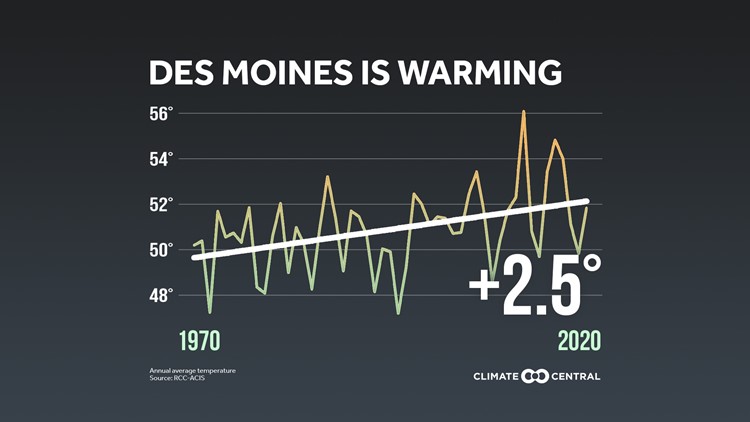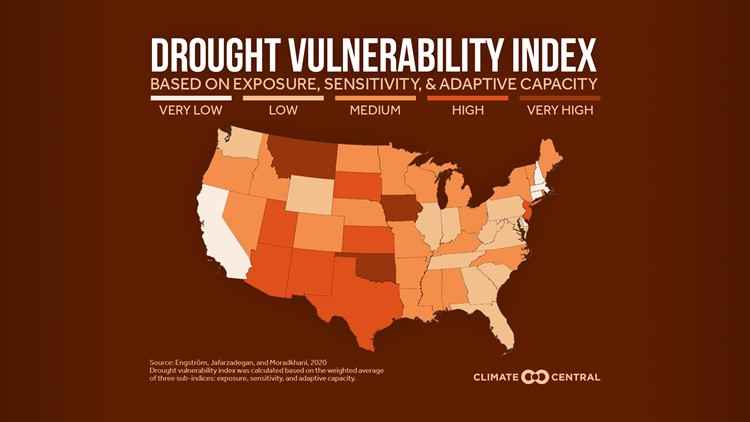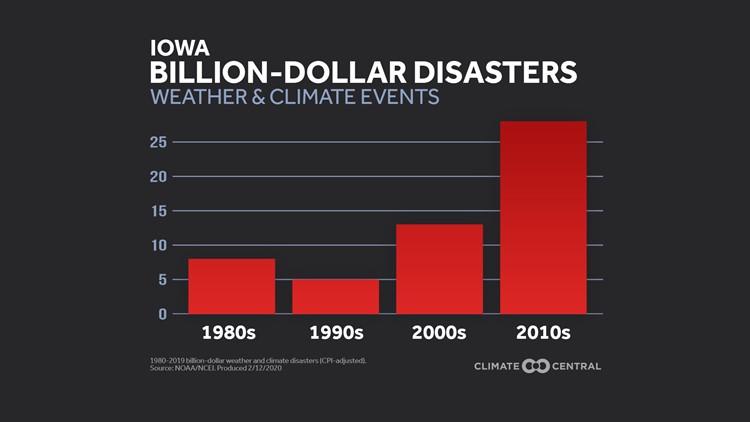DES MOINES, Iowa — Over the last decade, the terms "climate change" and "global warming" have been a hot button topic in local, state and federal debates and elections.
Unfortunately, climate change has been politicized for far too long.
The truth is this: climate change on Earth is real and well-documented through data and science.
The presence of a changing climate doesn't need to be a polarized issue.
Simply put, the amount of greenhouse gases in the Earth's atmosphere has increased over the last century, and this is causing the planet to warm at a rapid rate.
While it's easy to see the effects of climate change on a global scale, there are indeed effects occurring across Iowa, too.
Here are five ways climate change is adversely affecting Iowa:
- Iowa's state bird, the American goldfinch, is suffering from climate change as increased spring heat and heavier rain events are reducing the suitability of the bird's habitat in the state
- Extreme heat indices in the summer and extreme cold spells in the winter are becoming more numerous
- Increased pollen levels and a longer allergy season develop each spring based on higher amounts of carbon dioxide
- Iowa's vulnerability to drought is increasing due to more unpredictable fluctuations in the jet stream
- The number of billion-dollar disasters in Iowa has increased substantially over the last 50 years, especially flash flooding and river flooding threats
It should be noted this is only a small list of ways climate change is affecting Iowa, and is by no means exhaustive.
How climate change is affecting Iowa
Earth's atmosphere is mostly composed of gases like nitrogen and oxygen.
However, roughly 1% of the atmosphere's make-up comes from greenhouse gases, including water vapor, methane, nitrous oxide and carbon dioxide.
Most of the atmosphere's greenhouse gases directly result from regular human activity like industry, manufacturing, transportation and electricity.
Essentially, driving a car or having lights on at home both add some amount of carbon into the Earth's atmosphere.
WATCH: ISU Director of Sustainability talks Earth Day, taking 'green' action steps

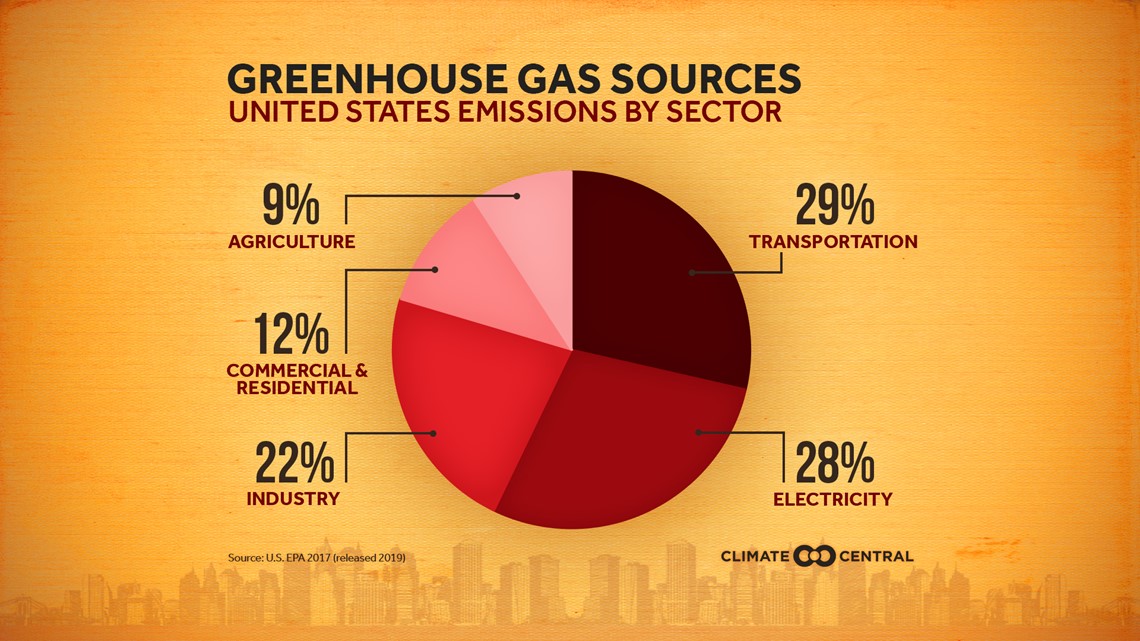
With greenhouse gases only accounting for a single percent of Earth's atmospheric composition, their role may seem unimportant.
Surprisingly, it's actually quite the opposite.
Greenhouse gases work to trap the sun's energy, or heat.
When humans add more greenhouse gases, especially carbon dioxide, to the atmosphere, greater amounts of solar energy are trapped.
As more energy is trapped in the atmosphere rather than reemitted out of the atmosphere, an overall warming of the atmosphere occurs.
Data since the Industrial Revolution demonstrates this correlation directly.
The concentration of carbon dioxide in the atmosphere has increased at a quicker pace since the Industrial Revolution.
Global temperatures have climbed at a similar rate, according to the climate research organization Climate Central.

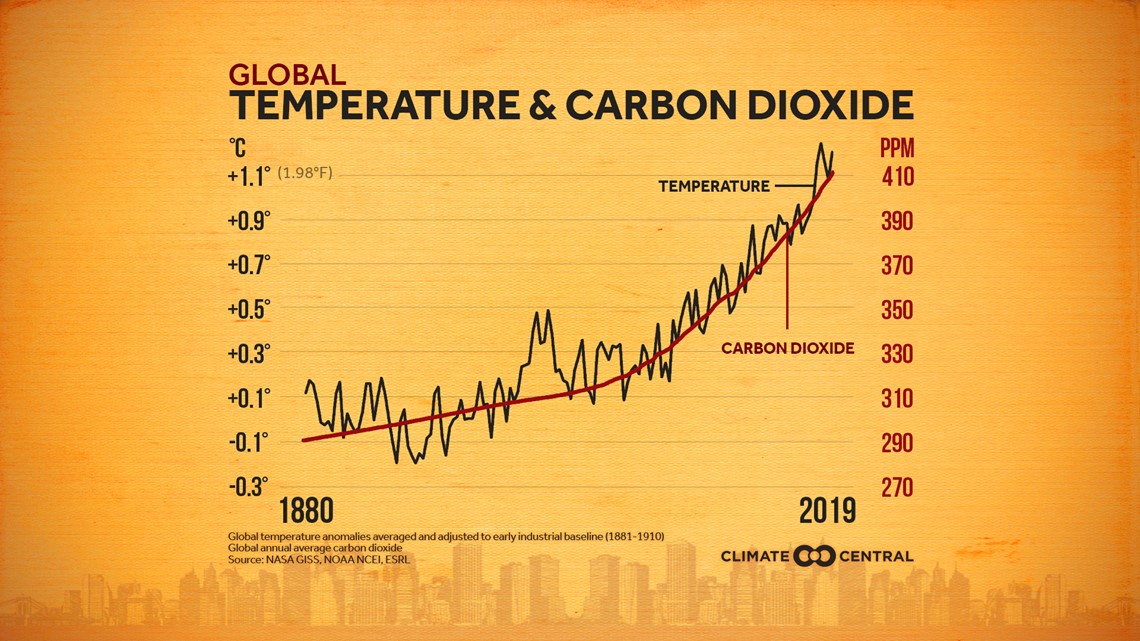
The effects of this clearly-illustrated global temperature increase are numerous, both across the planet and right here in Iowa.
As the atmosphere warms, it is able to hold more water vapor, which can lead to more frequent and severe thunderstorm and flooding events.
It's not just the air temperature that is rising. Ocean temperatures are on the rise as well, which can lead to more intense hurricanes.
Further, a warmer atmosphere can change the typical behavior of the jet stream, which causes more substantial cold blasts, more extreme heat and drought conditions, and even more severe wildfire conditions.
This may all sound like doom and gloom, but there are opportunities to address climate change and mitigate its effects.
Reducing your carbon footprint is critical.
It's as simple as using less electricity and energy at home, or choosing to handle all errands in one trip out of the house rather than using gasoline multiple times in one day.
With each individual making an intentional effort to reduce their carbon footprints, a collective dent could begin to be made in the fight against climate change.





